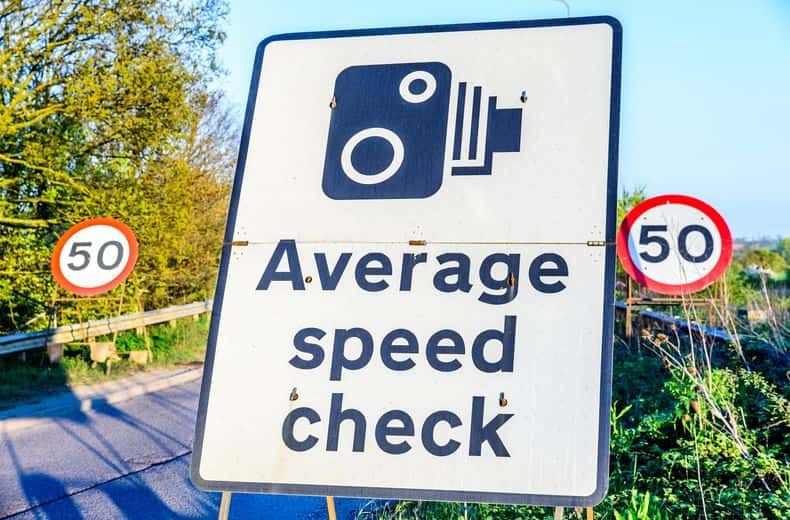Here's everything you need to know.
ANPR - Automatic Number Plate Recognition
ANPR stands for Automatic Number Plate Recognition. It's a technology that reads vehicle registration plates to create location data.
This information is captured by scanners or cameras then cross-referenced for a range of traffic and law enforcement purposes.
How ANPR works
ANPR technology converts an image of a number plate into machine-encoded text, this is called optical character recognition.
The technology can be used across CCTV, traffic enforcement cameras and ANPR-specific cameras. Infrared illumination can help cameras to capture a clearer image.
How ANPR is used
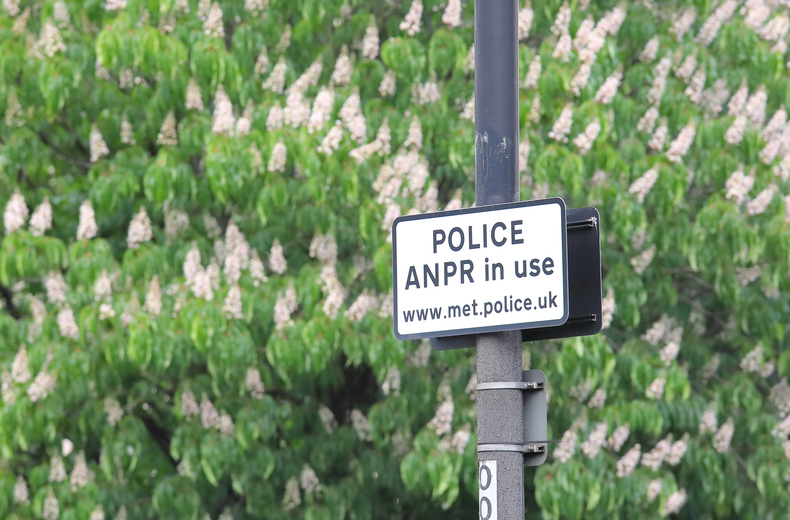
ANPR technology is generally used by two different groups:
- Law Enforcement Agencies (LEAs) including the police
- Private companies, local authorities and the Department for Transport (DfT)1

RAC Breakdown Cover
Limited time offer.
*£7 a month for new, single vehicle Basic cover. ^For all named members when added to new Extra or Complete cover. Included in Family cover as standard. Excludes Basic cover. Ends 08/05/24, 7am.

ANPR and law enforcement
ANPR technology is used in a number of motorway cameras to check the average speed of vehicles.
Timed images are compared between two locations to determine the speed of a car and issue any relevant fines.
The police use ANPR to “detect, deter and disrupt criminality”. This could mean anything from detecting uninsured and untaxed vehicles to locating stolen vehicles, or even solving cases of major and organised crime.
Around 11,000 ANPR cameras submit around 50 million ANPR records daily.
ANPR and traffic monitoring
Highways England uses 1,100 cameras across 500 sites to calculate journey times and, in the case of smart motorways, to control the flow of traffic through variable speed limits.
As a vehicle passes a camera, its number plate is read and converted into a non-unique reference number, known as a tag.
The same number plate will generate the same tag every time it passes a Highways England ANPR camera. Journey times are then calculated when cross-referencing the location of each tag.2
ANPR and car park management
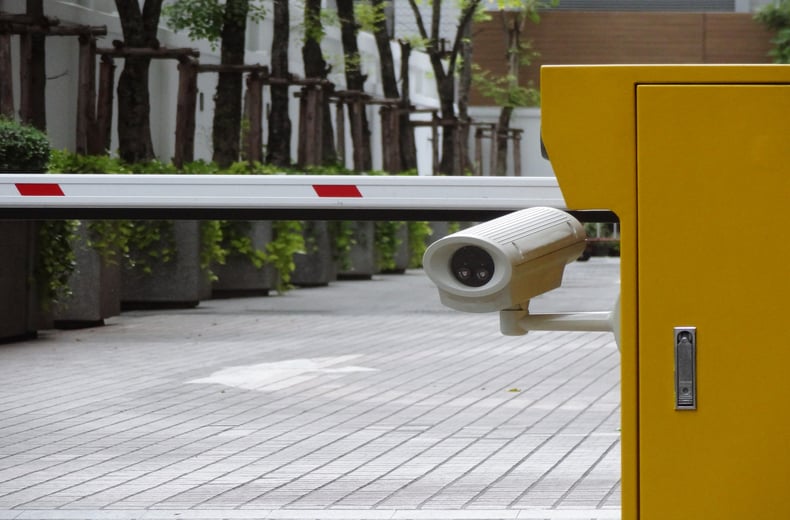
Both privately-run car parks and those managed by local authorities may use ANPR technology. It makes easier payment processes, visibility of spaces and ticketless systems possible.
Timed photographs from cameras at the entrance and exit of a car park give an accurate recording of how long a vehicle has used the facilities.
Multiple visits in a 24-hour period could, however, see a vehicle’s first entry paired with its last exit, a problem that The British Parking Association advises operators to check all ANPR interactions for.3
Private car parks are self-regulated through the BPA Code of Practice for Parking on Private Land.
New legislation aimed at tackling rogue private parking firms officially became law in March 2019, after a successful RAC-backed campaign.
ANPR and security
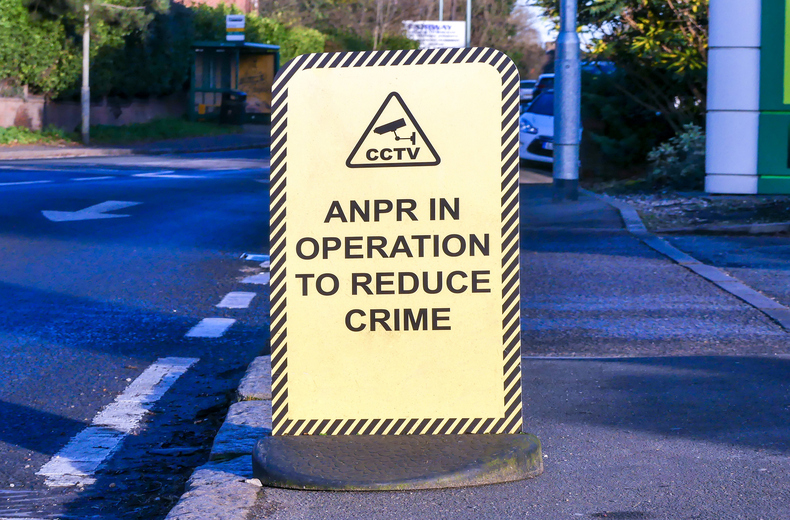
ANPR cameras are often used at sites that require a higher level of security.
Beyond event-logging, the technology can work with pre-defined lists to deny or grant vehicles access depending on their number plate.
Where to find ANPR cameras
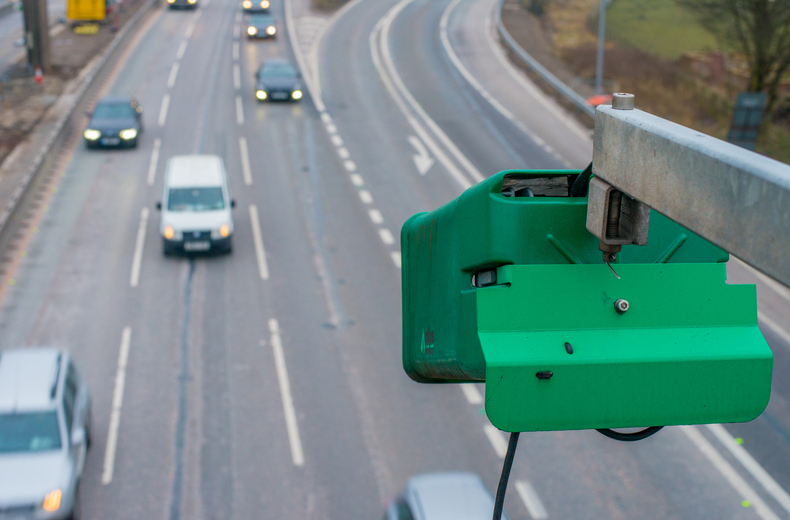
The 1,100 ANPR cameras used by Highways England are easily recognised by their bright green casing (as above). However, not all ANPR cameras have the same appearance.
As the technology is used for tolls, car parks, speed cameras and more, you’re probably passing ANPR cameras frequently without noticing them.
ANPR cameras can be mounted in police vehicles or fixed to a permanent location. The fixed locations remain undisclosed as this information could benefit potential offenders.
New cameras can only be installed after demonstrating their clear need in an assessment. Law Enforcement Agencies regularly review the privacy and effectiveness of fixed cameras to make sure their use remains justified.
Is ANPR used fairly?
As with any technology that handles data there are important questions about how ANPR cameras should be used to serve the public.
The Information Commissioner’s Office (ICO) is the UK’s independent body for upholding information rights and welcomes complaints about camera misuse.
A case of excessive ANPR use in Royston, Hertfordshire, was deemed unlawful by the ICO, as the local constabulary failed to carry out any effective impact assessments before introducing the cameras.
ICO Head of Enforcement, Stephen Eckersley, said: “The use of ANPR cameras and other forms of surveillance must be proportionate to the problem it is trying to address.”4
The ICO has published a CCTV Code of Practice that covers ANPR use and its compliance with the Data Protection Act.
If you feel ANPR cameras have been used unfairly, the RAC offers free legal advice to our members, with 24/7 support.
What happens to data captured by ANPR cameras?

The National ANPR Service (NAS) is the government programme that stores data from ANPR cameras to link vehicles, locations and crimes in a way that would otherwise prove almost impossible.
The initiative allows for easy accessibility of data and aims to ensure “data is stored, accessed and used in a proportionate manner so that the privacy of citizens is respected.”
The National ANPR Standards for Policing and Law Enforcement outlines that: “Access to ANPR data must be proportionate to the circumstances of that access and taking account of the impact on the fundamental rights and freedoms of individuals.”5
It continues to say: “ANPR READ records must be deleted no later than 12 months after their initial capture, unless retained under provisions of Criminal Procedure and Investigations Act 1996 (CPIA) or similar provisions in Scotland.”6
Here ‘READ’ is defined as “The interpretation of a VRM (Vehicle Registration Mark) by an ANPR system”.
Private companies can access vehicle and registered keeper data from the DVLA if they have reasonable cause to make a request. they must also be a member of the British Parking Association or the International Parking Community.7
Requests cost £2.50 each time and the DVLA says it does not make any money from the process as charges purely recover costs for providing the information.
Private companies aren’t able to access data from police databases.8
Black Box Car Insurance
Helps young and new drivers save money by rewarding safe driving.


What's next for ANPR?
As networks of ANPR cameras grow in size we should see smart cities cropping up across the country. The technology will provide real time information to transport departments and commuters to reduce traffic delays, enforce low emission zones and manage car parks on a city-wide scale.
The smart motorway network will cover 488 miles in England by April 2020 and Highways England plans to add an additional 300 miles of the ANPR enabled roads by 2025.9
Did you know we offer specialist learner driver insurance? And if you're looking to borrow a car for a short-period of time, you can take our temporary car insurance from 1 hour to 30 days. It only takes 15 minutes to activate.
Get 30 driving tips that will save you money
Running a car isn’t cheap, but there are some easy things you can do to keep your costs down. Get these tips and more useful driving articles sent straight to your inbox now.


Services we offer
- Breakdown Cover
- European Breakdown Cover
- Motorbike Breakdown Cover
- Electric Car Breakdown Cover
- Caravan, Motorhome and Campervan Breakdown Cover
- Business Breakdown Cover
- Van Breakdown Cover
- RAC Approved Garages
- Vehicle servicing
- Vehicle repair
- MOTs
- Mobile mechanics
- RAC Tyres
- RAC Approved Dealers
- RAC Warranty
- RAC Shop
- myRAC app

